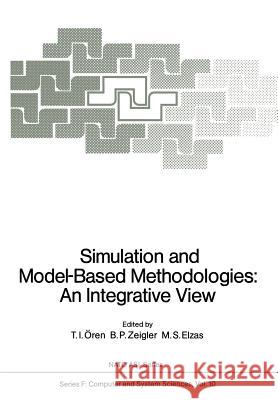Simulation and Model-Based Methodologies: An Integrative View » książka
Simulation and Model-Based Methodologies: An Integrative View
ISBN-13: 9783642821462 / Angielski / Miękka / 2011 / 654 str.
Simulation, like a gem, is multi-faceted. Several subfields of simulation have emerged based on the characteristics of models used in a simulation study, on the nature and the generation characteristics of model behavior, also on the agent soch as a computer which generates model behavior. For example, one distinguishes: - deterministic simulation, stochastic simulation, stiff simulation based on functional rela- tionships of descriptive vuriables of models used; - combined simulation, continuous simulation, discrete simulation, process simulation, dis- crete event simulation, activity-scanning simulation based on characteristics of descrip- tive variables of modelS; variable topology simulation soch as moving boundary simulation, cellular simulation and fixed topology simulation soch as boundary-value simulation and network simulation (network flow simulation, Petri-net simulation, bond-graph simulation) based on spatial distribution of models; - simulation with fixed organization models (soch as simulation with hierarchical models) and simulation with variable organization models (i.e., autopoietic simulation) soch as metamorphic simulation, simulation with self-organizating models, simulation with self- learning models, evolutionary simulation based on orgCl"lization of component models; - state-maintaining simulation, behaviorally adaptive simulation, goal-seeking simulation, purposive simulation, purposeful simulation, ideal-seeking simulation based on goal(s) to be pursued by the model; - trajectory simulation, stroctural simulation, real-time simulation, predictive simulation, prescriptive simulation, intermittent simulation (such as regenerative simulation, opti- mizing simulation, gaming simulation, conferencing simulation, on-line simulation) based on nature md generation characteristics of model behavior; and - simulators such as aircraft simulator, earthquake simulator where physical analog can be











